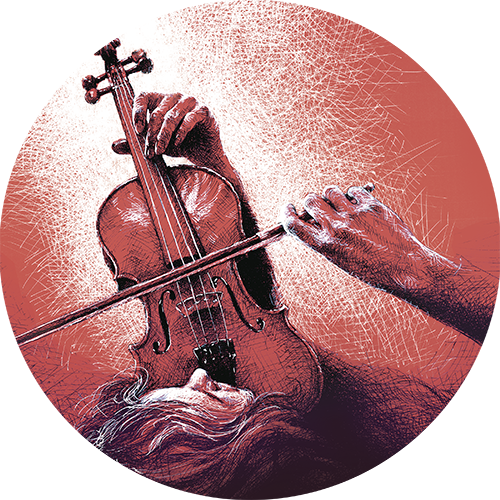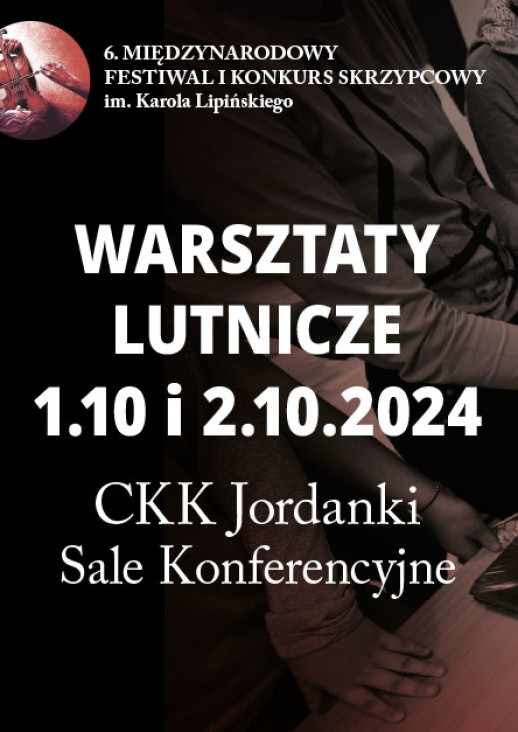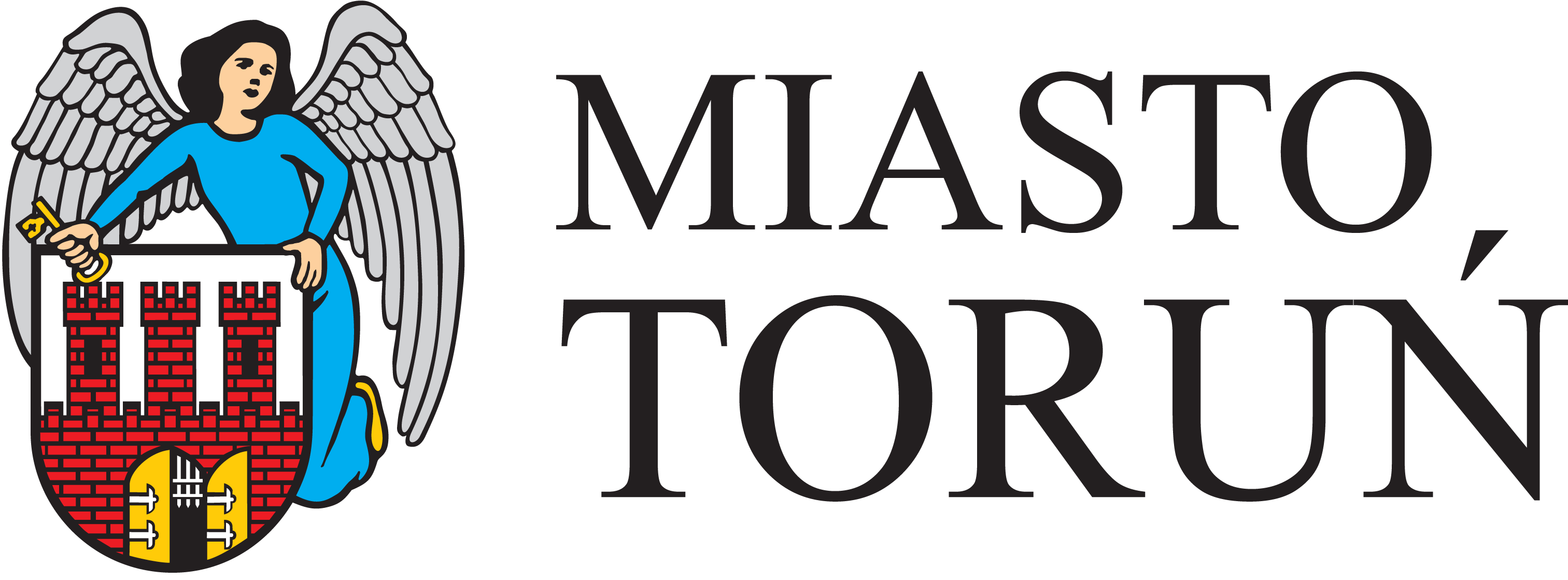Lutherie workshops
- Andrzej Nogaj - host, luthier
- Mirosław Paweł Baran - host, luthier
Although the term “luthier" did not enter the Polish language until the late 19th century, the art of lutherie has a deep and rich history in our country. Instruments from the 17th and 18th centuries even allow us to speak of a distinct “Polish school”, characterized by features such as an elongated lower section of the violin body, a short waist, and sharply defined tongues of the f-holes. Additionally, the Polish school is known for its unique decorative elements, like the intricately carved dragon and lion heads that adorn some instruments.
While the influence of the Polish school waned by the end of the 18th century, as violin makers increasingly adopted patterns from other countries, this did not signal the end of lutherie in Polish lands. The craft continued to evolve. How did Polish lutherie develop over the years? What roles did different manufacturing centres play in its history? And can Zdzisław Szulc’s famous hypothesis about the Polish origins of the violin be substantiated? These intriguing questions will be explored during the lutherie workshop led by Andrzej Nogaj and Mirosław Paweł Baran.
Andrzej Nogaj began his lutherie studies in 1973 at the State Secondary School of Music in Poznań, all while continuing his cello practice. He later graduated in Artistic Lutherie from the Academy of Music in Poznań. From 1985 to 1992, he served as a luthier at the Pomeranian Philharmonic in Bydgoszcz. Since 1985, he has operated his own private studio, where he specializes in the conservation of valuable instruments for Polish and international concert musicians, as well as for students and pupils. Nogaj builds instruments in the classical tradition, drawing inspiration, patterns, and models from the works of the old master luthiers. Since 2003, he has been teaching the course “Construction and Principles of Conservation of Luthier Instruments” at the Academy of Music in Bydgoszcz. He has been a member of the Association of Polish Luthier Artists since 1977.
Mirosław Paweł Baran is a graduate of the M. Karłowicz Secondary School of Music in Poznań (1980–1984) with a specialization in lutherie, and the I.J. Paderewski Academy of Music in Poznań, where he studied at the Chair of Lutherie. From 1991 to 1993, he operated an artistic lutherie studio at the State Opera and Baltic Philharmonic. Since 1993, he has served as a conservator at the Museum of Musical Instruments, a branch of the National Museum in Poznań. Baran has been involved in the organization of the International Henryk Wieniawski Violin Competition since 1996, where he is responsible for the care of the competition instruments. He also runs his own lutherie studio. Baran has collaborated with numerous museums, including the National Museum of Ethnography in Warsaw, the Museum of Kashubian and Pomeranian Literature and Music, the Museum of Folk Musical Instruments in Szydłowiec, the Museum of Weaving in Kamienna Góra, and the Polish Song Museum in Opole. He is the co-author of the publication Polish School of Lutherie: The Groblicz and Dankwart Instruments. He has been a member of the Association of Polish Luthier Artists since 1987.
Mecenas Główny: Gmina Miasta Toruń
Dofinansowano ze środków Ministra Kultury i Dziedzictwa Narodowego pochodzących z Funduszu Promocji Kultury w ramach programu „Muzyka”, realizowanego przez Narodowy Instytut Muzyki i Tańca
Dofinansowano z Funduszy Europejskich
Partner Główny: Samorząd Województwa Kujawsko-Pomorskiego
Mecenas Kultury - Główny Sponsor: PGE Polska Grupa Energetyczna S.A.
Mecenas Strategiczny: Strabag Sp. z o.o.
Mecenas: TZMO S.A.
Sponsor: Urbitor Sp. z o.o.
Współfinansowano ze środków Związku Artystów Wykonawców STOART
Partner motoryzacyjny: Toyota Bednarscy
Partnerzy: Cukiernia Sowa, MZK w Toruniu Sp. z o.o., Ruch Muzyczny, Iga Sarzyńska Wzrusza Toruń, Pneuma Jarosław Pawlicki, Pirmedia Sp. z o.o., Maciej Zieliński BJJ, RTR GROUP Sp. z o.o., Melt me tender, Galeria Kwiatów
Partner technologiczny: Vobacom Sp. z o.o.
Patronat medialny: TVP Kultura, Polmic, TVP 3 Bydgoszcz, TV Toruń, Radio PiK, Nowości, Toruń Nasze Miasto, Presto
Współpraca redakcyjna: RMF Classic
Organizator: Toruńska Orkiestra Symfoniczna




